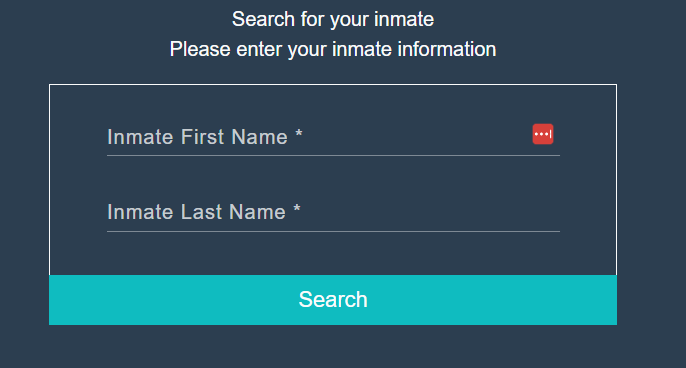How To Send a Letter To an Inmate
Updated on 2/22/2024
Does someone you know been arrested or Incarcerated and you want to know how to write an inmate a letter for the first time?
or are you just wondering how to pen pal an inmate?
Then the thought of “Can I send a letter to an inmate?” Has definitely gone thru your mind.
Either way in this article we will explain it to where you’ll be able to write a prisoner with confidence in no time.
Writing a letter to an inmate for the first time can be daunting, especially if you’ve never written to anyone in prison before.
You may be wondering what to say, what not to say, and how to make a good impression or you simply may be lost on the process of how to send a letter to an inmate.

How to Write a Letter to Someone in Jail
Writing a letter to a loved one incarcerated can be difficult or easy depending which method you choose. You can mail letters the traditional way making sure you follow all the rules
To start if you’re going to send the letters the traditional way (sending it from your home) there are rules you must follow or your letter won’t even get looked at by the guards at the mailroom and get rejected.
- Must be in a complete white envelope
- Must have the full name and inmate number on the envelope
- Must write the complete name and return address of the sender seal the Envelope Properly
- Facilities may require letters to be written on plain white paper without any embellishments or decorations.
These are just some of the main guidelines to follow when mailing a letter to an inmate, now if you want to avoid all these measurements and want to have the best chance possible to get a letter to an inmate we suggest using a dedicated service.
At Pigeonly we have 10+ years delivering letters to loved ones and we understand the guidelines and stay up to date with the rules and regulations to make sure letters aren’t rejected for these simple but overlooked guidelines. To find out more visit https://pigeonly.com/write-a-prisoner/
How To Write To a Prisoner You Don’t Know
Here are some tips that can help you with your letter to an inmate if you know them or not.
-
Be respectful When writing to an inmate, it’s important to be respectful. Remember that they are human beings who have made mistakes and are paying the consequences for their actions. Use respectful language and avoid making judgmental or degrading comments. Treat them with the same dignity and respect you would want for yourself.
-
Introduce yourself Start by introducing yourself and explaining why you are writing. Let them know your name, where you are from, and what motivated you to write to them. You can also share a little bit about your interests and hobbies to help them get to know you better.
-
Ask questions One way to start a conversation with an inmate is by asking questions. You can ask about their interests, their family, their hobbies, or their plans for the future. This will show them that you are genuinely interested in getting to know them and that you care about their well-being.
-
Share positive news Inmates are often cut off from the outside world and may not have access to current events or positive news. Sharing uplifting news and stories can help to brighten their day and give them hope for the future. This can be anything from a funny story about your pet to sending articles to inmates about a successful rehabilitation program.
-
Avoid discussing their case It’s best to avoid discussing an inmate’s case or their sentence. This can be a sensitive topic for them and may trigger negative emotions. Instead, focus on positive and uplifting topics that can help to boost their spirits and improve their mental well-being.
-
Be consistent If you decide to write to an inmate/, it’s important to be consistent. Write regularly and be reliable. This will help to build a relationship of trust and friendship over time. You can also encourage them to write back and share their own thoughts and feelings.
-
Keep it simple When writing to an inmate, it’s best to keep your letters simple and straightforward. Avoid using complex language or technical terms that may be difficult to understand. Use clear and concise sentences that get your message across effectively.
-
Show empathy Inmates are often dealing with difficult emotions and challenging circumstances. Show empathy and understanding in your letters, and let them know that you are there to support them. This can help to build a sense of trust and connection between you.
-
Encourage them One of the best things you can do for an inmate is to encourage them. Let them know that you believe in them and that you are rooting for their success. Encourage them to work towards their goals and to stay positive, even in difficult circumstances.
-
Be mindful of prison regulations When writing to an inmate, it’s important to be mindful of prison regulations. Some facilities have strict rules about what can and cannot be included in letters. For example, some may prohibit the use of stickers, glitter, or other embellishments. Check with the facility to ensure that your letters comply with their guidelines.
Also, you need to make sure you know the correct information for the inmate you’re wanting to correspond with otherwise your thoughtful letter will never reach them.
How to find out where an inmate is located
It’s important to have accurate information such as their
- Full Name
- Date of Birth
- Location of the facility in order to find them.
To find the correct inmate information, you can start by searching on websites with free inmate search by name that provide information about incarcerated individuals.
Many state and federal correctional facilities have inmate locator tool that allows you to search by name or inmate ID number.
You can also search through court records or contact the Department of Corrections for the state in which the inmate is incarcerated.

If you’re still having trouble locating an inmate, consider reaching out to a support group or advocacy organization that specializes in helping families and friends of incarcerated individuals.
How to become a penpal with a prisoner:
- Sign up at a inmate penpal site
- Browse and select a person to write
- Send your first letter via Pigeonly for easier & faster delivery
Here are some inmate penpal sites to consider looking at:
- Writeaprisoner.com
- Penacon.com
- Wireofhope.com
- Friends4prisoners.com
Now let’s talk about why you should consider becoming a penpal for someone incarcerated. Many people become a penpal for an inmate for various reasons.
For some, it may be a way to provide emotional support and friendship to someone who is isolated and may not have many connections to the outside world. It can also be a way to learn more about the experiences and challenges faced by people who are incarcerated.
Additionally, exchanging letters with an inmate can be a fulfilling and meaningful way to give back to the community and make a positive impact on someone’s life.
Why is it meaningful to the community? Well, research has shown over and over that when an inmate stays in touch with someone in the outside world it greatly decreases the chances of them reoffending once released.
However, it is important to note that communication with inmates should be done with caution and respect for their privacy and safety, and to adhere to any rules or guidelines set by the correctional facility.
FAQs
how long does it take to send a letter to an inmate?
It can take you as little as 5 minutes to send a letter to an inmate then your letter ships the same day and it will arrive at the jail or prison in 3 to 5 business days.
How many letters can I send my inmate?
At Pigeonly we don’t limit how many letters you can send your inmate but we do suggest that you get familiar with your inmate facility rules, as all prisons and jails are unique and mail limits can vary.
Conclusion Writing to an inmate for the first time can be a rewarding experience for you and for them. By following these tips and suggestions, you can make a positive impact in their lives and help to improve their mental well-being.
Remember that research proves that when an incarcerated individual stays in touch with someone on the outside their chances of recidivism lowers greatly.
Keep in mind to be respectful, ask questions, share positive news, avoid discussing their case, be consistent, keep it simple, show empathy, encourage them, and be mindful of prison regulations. Check out our Services page to learn more.